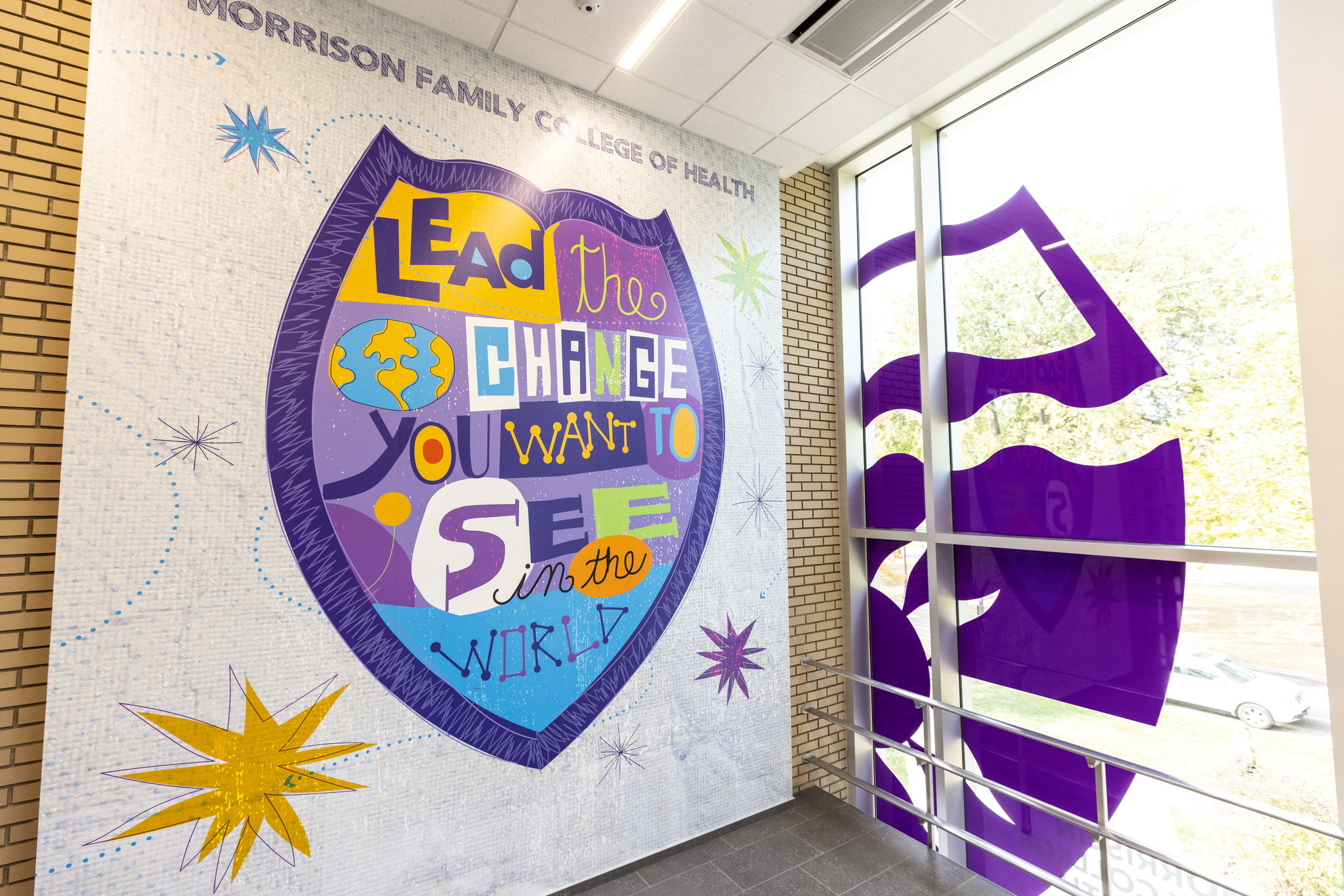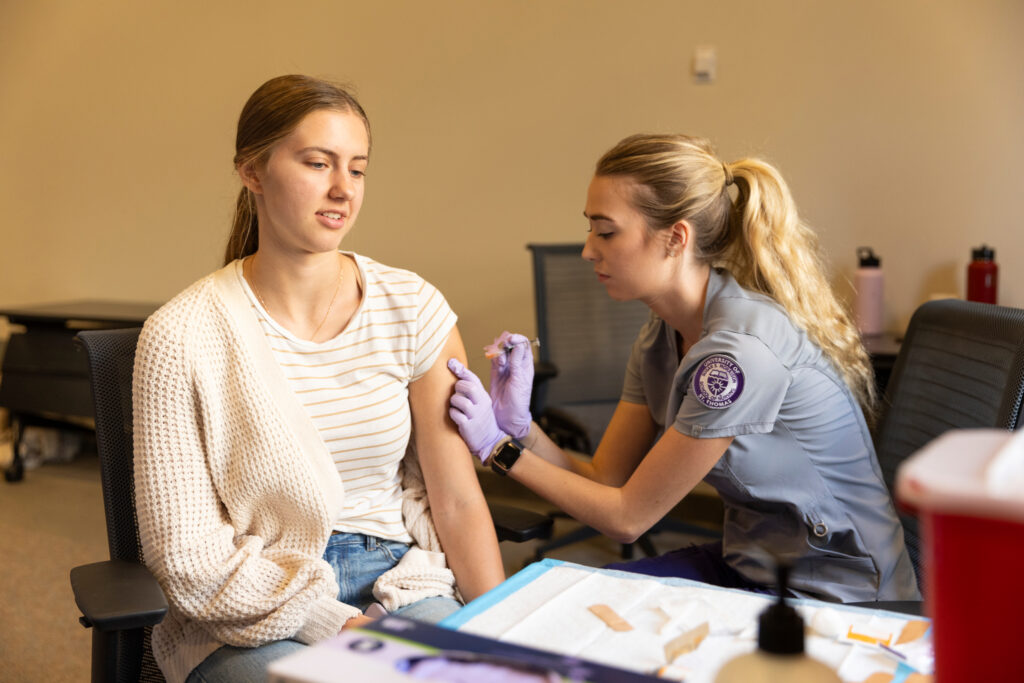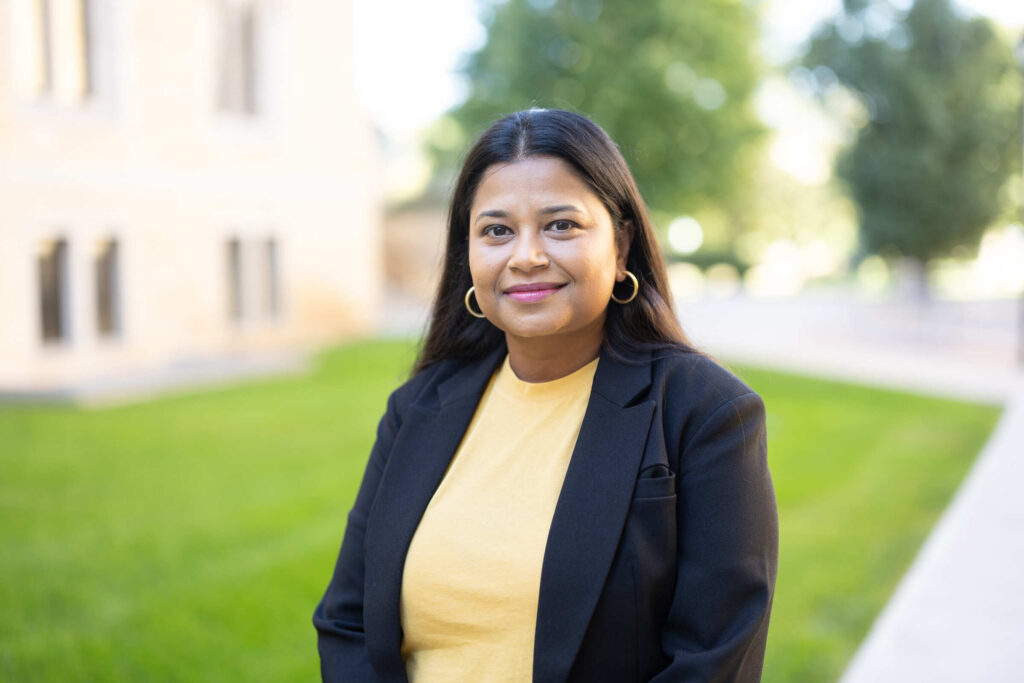A $900,000 grant from the Minnesota Department of Human Services will allow the Morrison Family College of Health at the University of St. Thomas to quickly train more students to serve on the front lines of the opioid crisis.
The School of Social Work will use the funds to develop and launch a new co-occurring disorders pathway in the Master of Social Work program and expand the existing pathway for Graduate School of Professional Psychology students. Within the next two years, 36 students (18 from each program) will receive additional training and significant scholarship aid to become dually licensed as Licensed Alcohol and Drug Counselors (LADCs).
Funding for the program comes from the Minnesota Department of Human Services based on recommendations by the state’s Opioid Epidemic Response Advisory Council. The new counselors from St. Thomas will help rapidly expand the behavioral health workforce at a time when opioid addiction and overdose deaths continue to rise at an alarming rate.
“For years now our students have seen firsthand how the opioid epidemic and substance use has impacted their own families and communities,” School of Social Work Associate Professor Tonya Horn said. “Now we can offer this additional path that will allow students to play an important role in the rapid response efforts to address the epidemic.”
Each student will receive a $10,000 scholarship to offset tuition for the additional courses required for the pathway and also a $10,000 stipend to support them in completing additional required practicum hours.
Faculty will train students in evidence-based prevention and treatment intervention strategies. The new track will also explore the social, political and economic context within which substance use occurs.
While opioid use affects all communities, disproportionate overdose deaths have been recorded among Black, Indigenous and other communities of color, often due to unequal access to treatment, according to data gathered by the Centers for Disease Control and Prevention (CDC). Horn, whose professional work has focused on mental health and substance use interventions for refugee communities, hopes the new pathway will promote culturally sustaining supports for communities most impacted by the opioid epidemic.
“Watching how the opioid epidemic has impacted the community that I’ve worked closely with – Karen people, who are refugees from Burma – was a powerful motivator for me to want to apply for this funding,” Horn said. “We need more students prepared to work on the front lines across communities, and this new program is designed to do just that.”
Interested students have until March 28, 2024, to apply for the first round of scholarship aid. A second cohort of students to pursue the new track will be formed in 2025.







